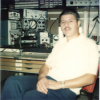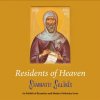Sunday, January 29, 2023
There are moments that emerge as unique and unrepeatable events, moments in which the very presence of God is revealed to us. And then time stops, to make us think more deeply about what God’s providence is working for us. Such a great moment happens every time we celebrate the Divine Liturgy.
Your Eminences, Your Graces, beloved brothers in the Holy Spirit and co-celebrants, and dear pious assembly of the fullness of the Church,
Today in this holy church we met to honor the memory of a Saint who spent his whole life conveying the message of the good shepherd, the message of God’s sacrificial love for man and the love that people should have between them. And this Saint, whose name this magnificent Church honors, Saint Sava, was naturally called “enlightener” by the Church.
But where did this bishop find his inspiration? Today’s Gospel reading helps us to understand that. Sava recognized the God-man as the door to life, through Whom we go in and out and find pasture (see Jn 10:9). I am the door. If anyone enters by Me, he will be saved, and will go in and out and find pasture. This great entrance was given to St. Sava in a unique way so that he also became the true shepherd. As his troparion laconically says, for his people he was a teacher of the Path that leads to Life. And how did he recognize this path? My brethren, to know the “good shepherd” presupposes a “call by name”. “He calls his own sheep by name … and the sheep listen to his voice”. And this “calling by name” was a transcendent lightning flash that illumined the unknown depths and breadths of Sava’s existence.
Before and during the period the Fourth Crusade occurred—crusader armies captured, looted, and destroyed parts of Constantinople, then the capital of the Byzantine Empire—those where ill-starred years were years of general upheaval and confusion on many levels. Rastko, the third son of the Serbian ruler Nemanja, finds himself and develops in such circumstances and shocking events. But the Lord of history, with his discreet methods, prepares the secret of the brave Prince and his mission. In all these commotions, Rastko is not swept away, and the focus on the horizon does not fade for him. A fugitive from his parents will be caught in the net of the Holy Spirit, in order to “tie” his compatriots to the fold of Christ, the Great Shepherd, who said: “I know My sheep and am known by My own”.
Having a shepherd, according to an Athonite Elder Vasileios of Iveron, gives man the possibility of knowing God in a way worthy of God, of seeing, of feeling His presence as a light that enlightens and comforts every man coming into the world. Thus, St. Sava opens for us the door to the knowledge of God. And that road is love. And Sava recognized this love. He knew it by privilege, which only God knows why it was granted to him. When he left his homeland to live as an ascetic at Holy Mountain, he learned from his Athonite brethren that God is communion, that God is love. And that love is the only way to be able to come into communion with God.
I am the door; if anyone enters in by me, he will be saved, and will go in and out and find pasture. The open door that leads to freedom and unity. He will go in and out and find pasture. In other words, he will find and keep finding freedom and unity—the untrammeled freedom which has become a welcoming nest. And the unity of love which has the spaciousness and purity of the outdoors—the Christian ecumene. And so, with his presence, Sava would enchant and transform his environment: ecclesiastical, social, political... Contrary to our present-day manners, Sava did not oppose East and West, but strove for their synthesis. As St. Nikolai of Zhicha said, “in it East and West met in full harmony… He was prone to deep thinking like an Easterner, and energetic in action like a Westerner”.
The Gospel reading also says, that the Shepherd “goes before them”. When He takes the sheep out of the sheepfold, He does not abandon them. He looks after them. He leads them “further” (Lk 24:28). He is constantly sacrificing Himself for the liberation, the continuous progress and the sanctification of the sheep. Realizing that the Church in the Serbian nation needs self-government to breathe fully, Sava goes to Nicaea in 1219. The Lord blesses his intention. With the support of Emperor Theodore I Laskaris and “the Most Venerable Patriarch and the whole Constantinopolitan assembly”, St. Sava received the blessing that Serbian archbishops receive consecration from their own bishops’ assemblies. When this sincere Christian ecumenist worked to organize the local Serbian Church, “he only wanted to make his people a worthy member of the universal Orthodox family of Christ through a nationally organized church. He was personally imbued with the spirit of Christian ecumenism,” says St. Nicolai, and adds: “As such, he feels at home in every Orthodox community of every race and language.” And from this each of us can draw real lessons.
And we see in Sava’s case, that when the Good Shepherd calls the sheep by name and sacrifices Himself for them, He creates new good shepherds by grace. Sava organized his church into dioceses headed by new bishops. He then embarked on a cultural and ecclesiastical renaissance that included the establishment of schools and the beginnings of a medieval Serbian literature
Here we come to our concluding remarks:
I am the good shepherd. The good shepherd gives His life for the sheep.
In the image of the Good Shepherd, St. Sava sacrificed his life many times for the rational sheep; he called the sheep by their own names, each one individually, allowing his people to speak its own language, to become living persons. By learning them to out of love to sacrifice their life for others, he offered them to live the reality that death has been abolished.
It is significant because Saint Sava, with all the sensitivity that distinguished him, made the Serbian people understand something paradoxical—that the life of the Christians was a life lived between life and death. If one really loves people, one must identify oneself with them and share their difficulties and sufferings. Love means sharing the misfortunes of others. All these, my brothers, are characteristics of this great Saint whose memory we commemorate today. And this relationship of Sava with the Lord reveals to us that saying we love God, and our fellow man is not enough if we do not sacrifice for them.
This bloodless sacrifice is offered by the Church every time we celebrate the Sacrament of the Holy Eucharist. It brings us all together.
And this is no accident, my brothers. At this moment, when we are honored by the grace of the Lord to celebrate the Divine Liturgy, we feel St. Sava walking here among us and telling us the same words of Christ. To address these words first to us, the faithful Christians and especially the Orthodox. To understand that without love we cannot be faithful to his preaching and message.
Dear brothers and sisters,
The light with which Sava illuminates our present and future still shines today. It is up to each of us to recognize him and to adopt Sava’s ethos, as much as possible. Today, my brethren, we are called to listen to his call, a call which he addresses to us from the Communion of the Saints. This call is identical with the one Christ gives to us in today’s Gospel reading: “I have come that they may have life, and that they may have it more abundantly.” And the saying “There shall be one flock, one Shepherd” (Jn 10:16) we experience as something already accomplished.
Besides, from this Holy Ambon I send my wholehearted wishes to the beloved Hierarchs, to the devout clergy and to the entire flock of the Orthodox Church in the US, and we pray that God may bless our efforts and good works, to the glory of our Father Who is in heaven and the honor of our Church and our people. This message, my dear brothers, rings in our hearts today in this sacred space. And, with your blessing, Your Eminence and beloved Hierarchs, let us pray that this message will be fruitful. And with this message may all be united and let us strive to know the true God by loving one another. Even more, even deeper. Amen!
Source: Assembly of Canonical Orthodox Bishops of the United States of America




